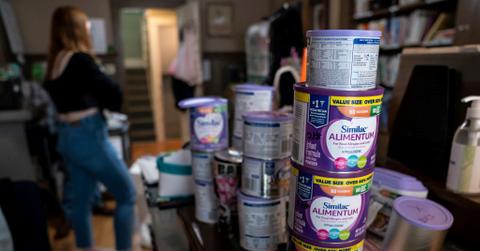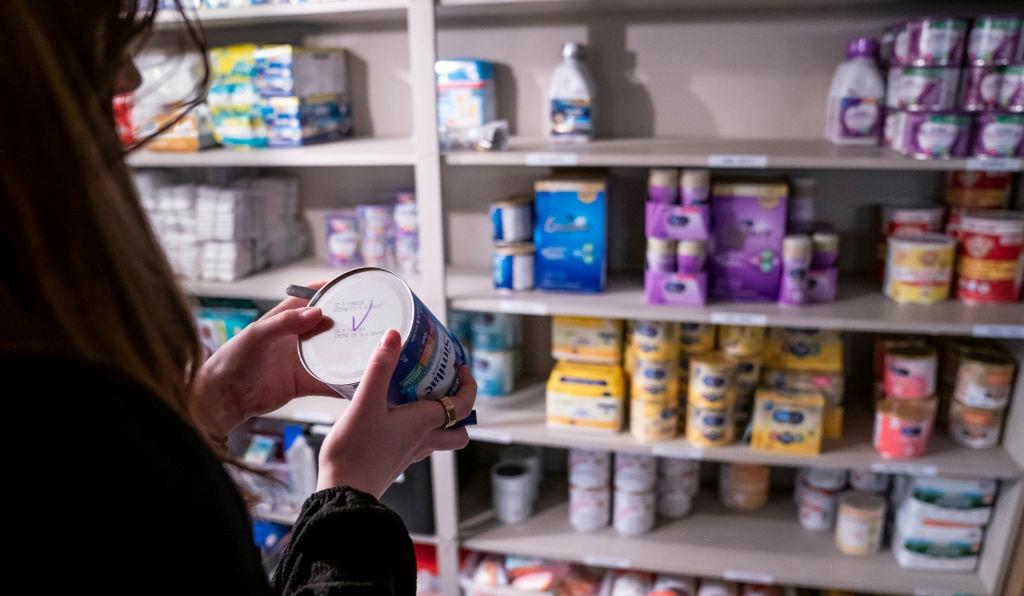Baby Formula Stocks: Impact Investing Could Help Resolve the Shortage
What if your investment portfolio could help resolve the baby formula shortage? Here’s whether investing in baby formula stocks makes a difference.
May 13 2022, Published 11:18 a.m. ET
A whopping 43 percent of popular baby formula products were out of stock during the week ending May 8, as reported by CNBC. The shortage is a result of an amalgam of issues, including supply chain constraints and safety recalls. Some investors are looking for opportunities to profit from baby formula stocks, while others are hoping a long-term bet boosts the industry’s recovery in a dangerously slim retail market.
Can investing in baby formula stocks help resolve the shortage, and which public companies may be worth adding to your watchlist or betting on?
Parents are in dire straits amid the ongoing baby formula shortage.
The baby formula shortage is getting severe, but it has been building up to this point for months. Supply chain bottlenecks as a result of the COVID-19 pandemic oozed into the baby formula market, a problem only exacerbated by widespread safety recalls in February.
Major baby formula manufacturer Abbott Nutrition, owned by parent company Abbott Laboratories (ABT), instituted recalls in February of several brands after multiple babies got sick and two died from bacterial infection. The bacteria Cronobacter sakazakii "may have contributed to the cause of death for both patients,” the FDA said at the time.
There are myriad legitimate reasons parents and caregivers use formula instead of breast milk during a baby’s infancy. The shortage is a major risk for families across the nation.
Will impact investing in baby formula stocks help?
There's a strong unmet demand in the baby formula market in 2022. As such, investment opportunities are definitely present. Short-term investments aren’t likely to resolve any gaps in the market, but impact investing is typically a long-term strategy to promote tangible change.
When a publicly traded company garners stock interest, the security’s share price increases. As a result, the company has more money to invest in its own future growth. For industries like baby formula that are experiencing shortages, this capital can help reach solutions that could ease the burden on consumers.
The baby formula shortage is a multifaceted problem, and impact investing isn't a panacea. Still, a long-term approach can’t hurt the company — and while there's a risk to the retail investor, the move could help achieve profit in an otherwise downturned broad market.
Investors can consider baby formula stocks as the shortage marches on.
Abbott Laboratories (ABT) stock represents Abbott Nutrition, which accounts for 43 percent of the baby formula market share in the U.S.
Strict FDA regulations limit the baby formula brands that companies can sell on American shelves. Abbott’s Similac is one of the nation’s biggest brands. Increased capital could help Abbott reopen its plant or find a new one without safety risks.
ABT stock is down more than 20 percent YTD as of Friday, May 13. However, shares have jumped about 5.36 percent in the last day alone, marking a shortage-tied rally.
Nestle Infant Nutrition is another major brand. Nestle ADRs (American depositary receipts) are available to trade on the OTC (over-the-counter) markets under the ticker symbol "NSRGY."
Nestle stock is down about 13 percent YTD as of May 13. The shares are up about 1.26 percent in the last day as investor interest grows.
The U.S. plans to increase baby formula imports amid the shortage, which means that international and OTC-traded stocks like Danone (DANOY) and Reckitt Benckiser (RBGLY) could also be investment opportunities.


